Accident is the most unwanted thing to happen to a road user, though it happens quite often. The most unfortunate thing is that we do not learn from our mistakes on the road. Most of the road users are quite well aware of the general rules and safety measures while driving or walking but it is only laxity which causes accidents and crashes. While the main cause of accidents and crashes are due to human errors, black spots on roads too contribute to the rising accident deaths. This Weekend Star Supplement identifies some of the black spots on city roads and warns motorists to tread a cautious path.
By S.T. Ravikumar
Where are the black spots near you?
Indian roads are undoubtedly the most dangerous in the world and National Highways have for long been the bright spots on India’s lacklustre road transport network.
The National Highways Authority of India (NHAI) has now identified what it calls ‘black spots’ on these roads India has long been proud of — stretches that have become notorious trouble spots for accidents or where accidents have historically been concentrated. A NHAI report has said there are 506 such stretches across the country with as many as 78 (or 15.4 per cent) in Tamil Nadu alone, the highest for any State.
In road safety management, an accident black spot or black spot is a place where road traffic accidents have historically been concentrated. It may have occurred for a variety of reasons, such as a sharp drop or corner in a straight road, so oncoming traffic is concealed, a hidden junction on a fast road, poor or concealed warning signs at cross-roads.
In any given 500-metre stretch if there are more than 10 accidents in three years that have resulted many in loss of lives, such places are called black spots.
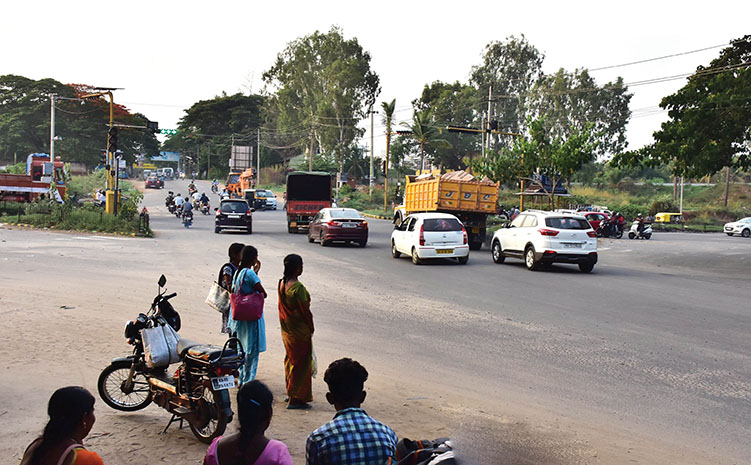
The NHAI says that the maximum number of road deaths occurred due to “road engineering defects”. Officials said there is no specific definition for what constitutes a “road engineering defect”. The description is generally used when a problem develops due to the negligence of the department responsible for maintaining the road — covering everything from potholes to poor planning.
Black spots account for 90% of road accidents in the country and short-and-long-term measures chalked out by the Union Ministry of Road Transport and Highways (MoRTH) to curb accidents in such spots assume significance. With the mounting number of accidents and fatalities, analysis of accident-prone stretches and removing black spots have been given priority.
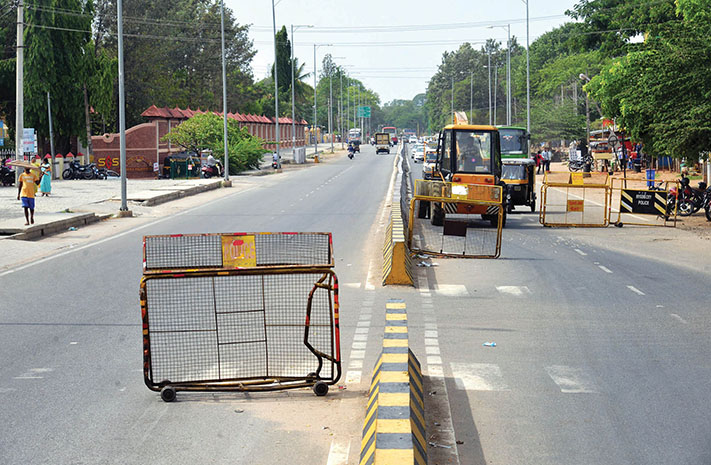
As per the Ministry’s protocol for identification of black spots, an accident black spot is a road corridor of about 500 metres long on which either five road accidents, involving fatalities and grievous injuries, had been reported during the last three calendar years or 10 fatalities during the last three years.
In Mysuru there are 12 such black spots under Krishnaraja, Narasimharaja and V.V. Puram Traffic Police limits and in the last three years, 169 accidents took place where 41 people lost their lives and 167 people sustained grievous injuries scarring them for life [see table].
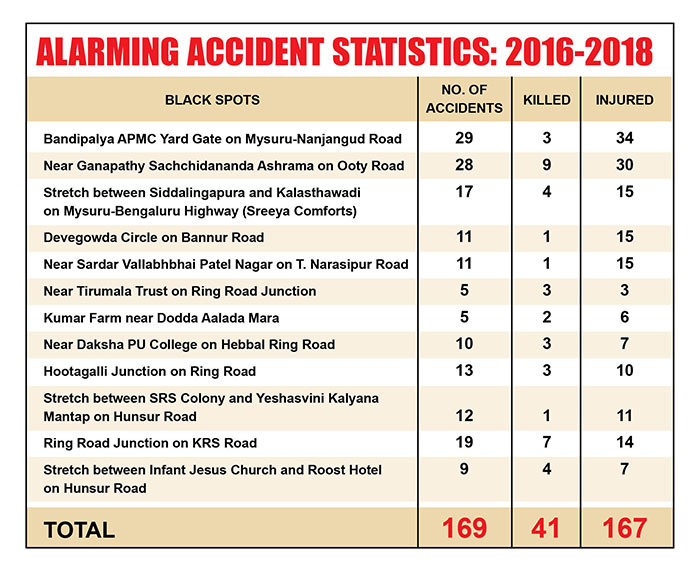
The strategy to eliminate these black spots includes effective road engineering solutions at the design stage, rectification of accident black spots, and improvement in automobile engineering, driver education, revision and effective enforcement of laws.
According to transport experts, simple and well-thought out designs like the height of road dividers, placement of over-bridges and underpasses at appropriate places or the placement and design of speed breakers can often be very effective in ensuring safety. Project Directors and Regional Officers of Highway projects have to adopt a sensitive, sensible, time-bound and result-oriented approach to tackle the problem of road accidents and take up the work of rectification of accident black spots in mission mode, say experts. Also, local problems of a Highway site should be taken into account when preparing the Detailed Project Report (DPR) for a Highway project.
According to traffic experts, most of the accidents at black spots occur due to speedy and aggressive driving of road users. Furthermore, most of the accidents happen in broad daylight rather than at night. In order to have safe and smooth flow of traffic on urban Highways, encroachments within the right of way should be cleared and separate service roads should be provided for traffic.
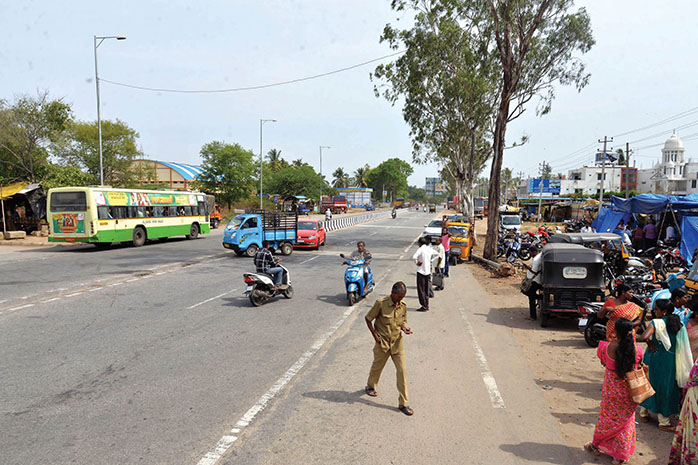
Low cost remedial measures like road marking, signs, signals, enforcement, slight geometric improvement can reduce black spots. All the existing available accident data must be analysed and processed in order to address the main causes of the crashes with respect to vehicle, road characteristics at specific locations and road user’s psychology, they say.
Each and every black spot must be treated independently based on its nature, size and intensity of accidents and this can be done in a systematic way so that a better, safer and convenient road traffic system can be developed, say experts.
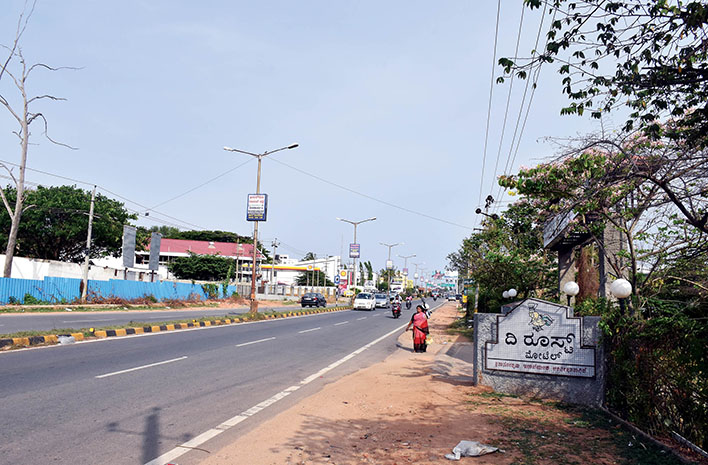
‘Engineering, Enforcement, Education can prevent accidents at black spots’
Speaking to Star of Mysore on the black spots and how to avoid accidents at such places, Additional Director General of Police (ADGP), Crime and Technical Services – Karnataka State, Dr. M.A. Saleem said that firstly, certain road engineering measures must be taken to eliminate accidents.
“Every road or Highway should be constructed in a way that guarantees and ensures comfortable, convenient and most importantly, safe transportation of people and various kinds of goods and materials. But accidents are very common events on the roads, and sometimes valuable lives are lost. There is a need for protective measures to be taken, for example installation of barricades,” he said.
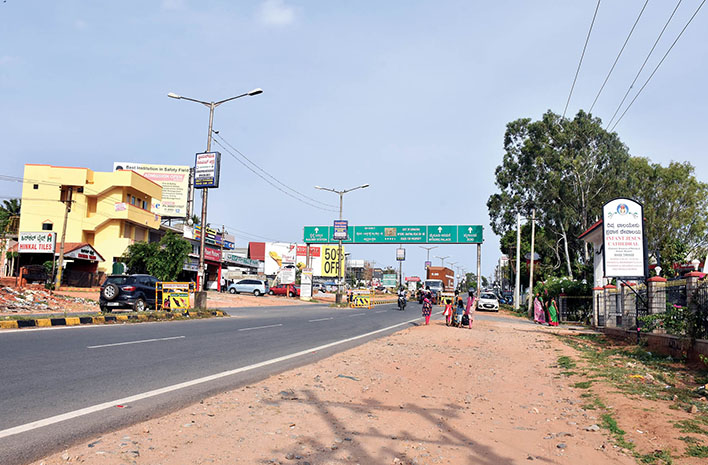
Technological advancements in Highway engineering have improved design, construction and maintenance methods used over the years. Aspects like road design speed, traffic volume, number of lanes, level of service, sight distance, alignment, super-elevation and grades, cross section, lane width, structure gauge, horizontal and vertical clearance must be looked into, said Dr. Saleem, the former Mysuru City Police Commissioner, who has a Doctorate Degree in Traffic Management from Bangalore University.
Other measures include traffic calming measures like preventing overspeeding must be initiated along with enforcement measures like placing CCTV cameras, presence of Policeman and other measures. Most of the accidents at black spots occur due to traffic violations including driving at a speed exceeding the specified limit, jumping red signal, carrying overload in goods carriage and carrying persons in goods carriages, speaking on mobile phone while driving, driving without wearing seat belt or helmet, and drunken driving, he said.
“In order to curb overspeeding that leads to accidents, barricades must be placed as speed-breakers on some of the roads at alternative intervals. In the absence of speed- breakers, motorists tend to increase speed and the problem is compounded in the absence of signals. Lastly, users of that particular road stretch must be educated about black spots for them to be cautious,” Dr. Saleem added.



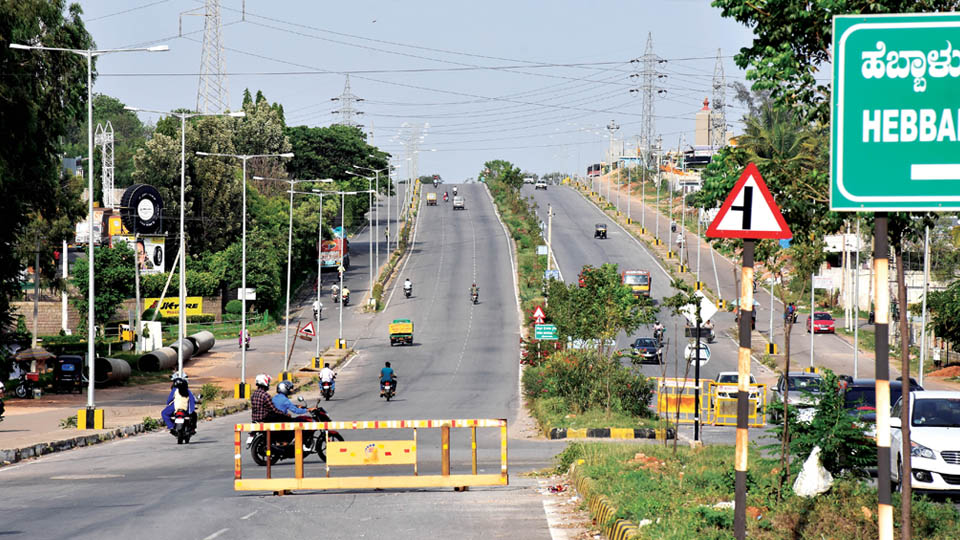




Recent Comments